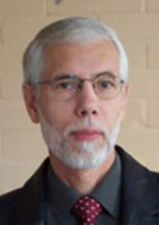Dan Rosbjerg

The 2001 Henry Darcy Medal is awarded to Dan Rosbjerg for his outstanding contributions to the analysis of extreme hydrological processes and their engineering implications implications.
With a background in civil engineering, Dan Rosbjerg is an internationally reputed engineering hydrologist who has done innovative research in the analysis of extreme hydrological events, including regional assessment of floods and droughts and estimation of extreme rainfall. He has been a strong stimulus for research in these areas through active membership of working groups, convener and member of scientific committees, including: UNESCO-IHP, IAHS and EGS. He has an impressive list of books, international articles, reports and lecture notes. He has been editor and co-editor of six refereed conference proceedings. As editor of Nordic Hydrology he has been a strong promoter for the hydrological sciences in northern Europe, of which he is an active representative in EGS.
Response
This is really an extreme event. It is a great, great honour, but at the same time overwhelming for me to receive the Henry Darcy Medal. It is more that I had ever expected. Prediction of extreme events and their associated frequencies is a task that relies heavily on the use of statistics. Thus, it has been claimed that such kind of analysis should not belong to the family of hydrological sciences. Obviously, I disagree. Design of, e.g., reservoirs, river embankments and drainage structures is part of hydrological engineering, and the hydrological science community should feel obliged to contribute to improved engineering methods. Particularly, the uncertainties involved in prediction and forecasting should be in focus of the scientific analysis of extremes. However, uncertainty analysis is important in all kind of modelling efforts. Deterministic modelling is not deterministic in the sense that its prediction results are certain. Fortunately, this is now widely recognised, and stochastic methods are becoming an important element of any modelling effort. Although analysis of extreme events has been a focal point in my research, I have had the great privilege to be active in many branches of hydrology and hydrological organisations. At my home base I have been heading a Groundwater Research Centre for 12 years. I have enjoyed a close cooperation within IAHS during many years in the International Commission on Water Resources Systems, and as a frequent visitor at EGS assemblies I have found the two organisations to complement each other in an almost perfect way. I should also point to the fact that I have been the editor of Nordic Hydrology for more than 15 years. In this capacity I have esteemed to deal with the whole spectrum of hydrological sciences and communicate with active hydrologists around the world. Once again I would like to thank EGS for awarding me the Henry Darcy Medal. I will consider it as recognition not just of me, but also of my co-workers during time. Without their contributions and inspiration I had never come so far.
